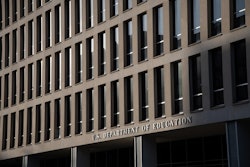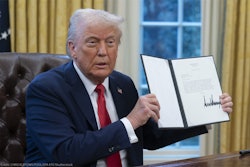Ilias Gomez said that he wasn’t “the best kid” in middle school. He would often get into trouble, and he struggled to maintain a C average. But as he headed toward high school, an opportunity to take college courses helped turn everything around.
“To me, I felt the courses and material in college were more beneficial—it was easier to digest, compared to high school,” said Gomez. His grades began to improve, as well as his behavior.
Gomez participated in the dual credit program from local community college Dallas College and the Dallas Independent School District. By the time he graduated from high school, he had already earned his associate’s degree. Through his dual enrollment program, Gomez was able to participate in internships and make connections in his field of interest, video game technology.
Gomez enrolled as a junior at four-year University of North Texas at Denton, and he is on track to graduate next year. He hopes to one day open his own studio and create his own video games. His story is just one example of how colleges can support its surrounding community by connecting residents with opportunities for success.
 Dr. Michelle Asha Cooper, former deputy undersecretary for the U.S. Department of Education and current vice president for public policy at the Lumina Foundation.
Dr. Michelle Asha Cooper, former deputy undersecretary for the U.S. Department of Education and current vice president for public policy at the Lumina Foundation.
“This question is so important now, at a time when people question the value of higher education, when we are still moving through a period of pandemic recovery, navigating inflation and economic instability,” said Dr. Michelle Asha Cooper, former deputy undersecretary for the U.S. Department of Education (ED) and current vice president for public policy at the Lumina Foundation, an organization working to make postsecondary education available to all.
“We need more people with more degrees that confer real value in the labor market,” said Cooper. “America needs a new definition of higher education excellence—one that measures what colleges do for the country instead of for themselves, the vital role they can play in their communities to ensure learning and earning are aligned.”















